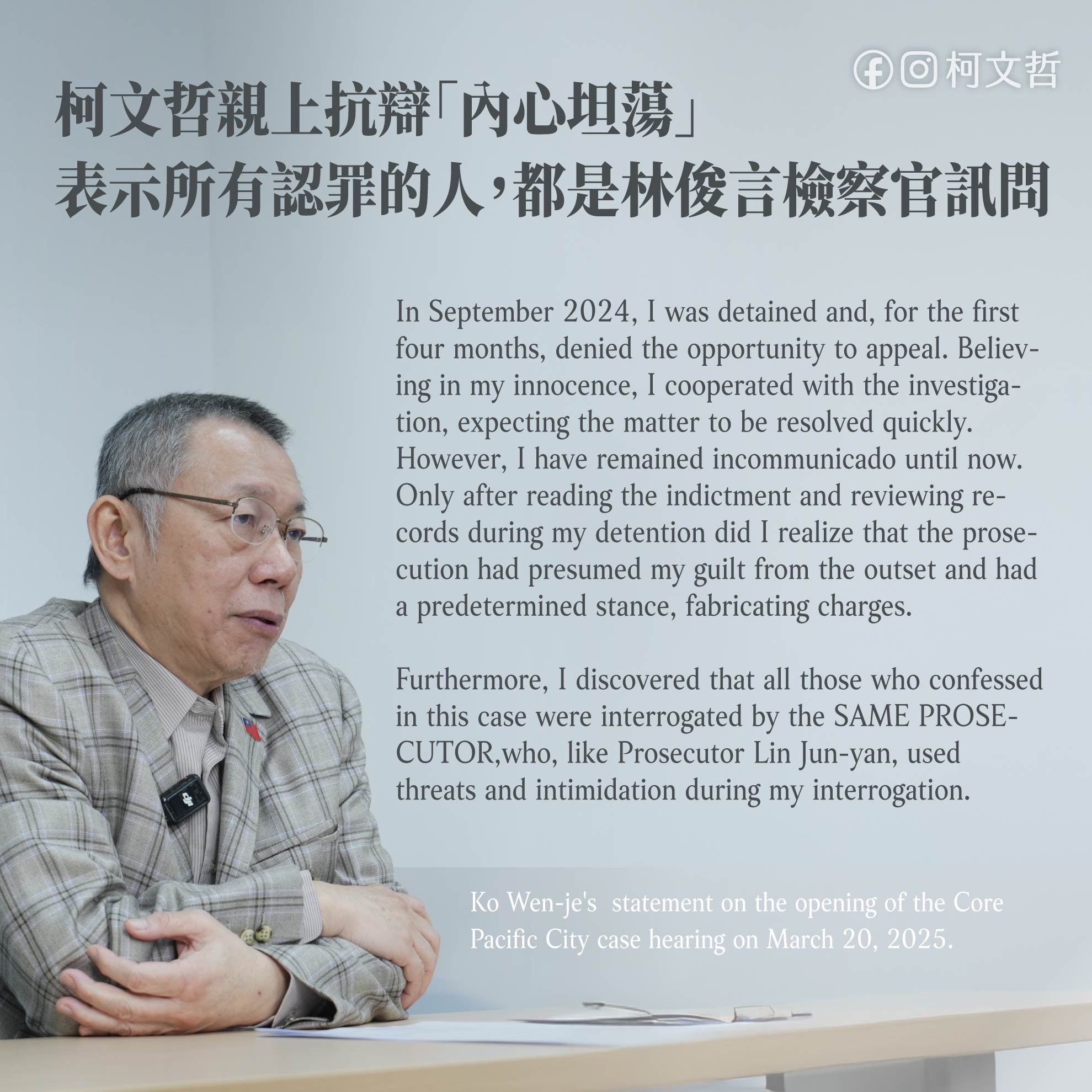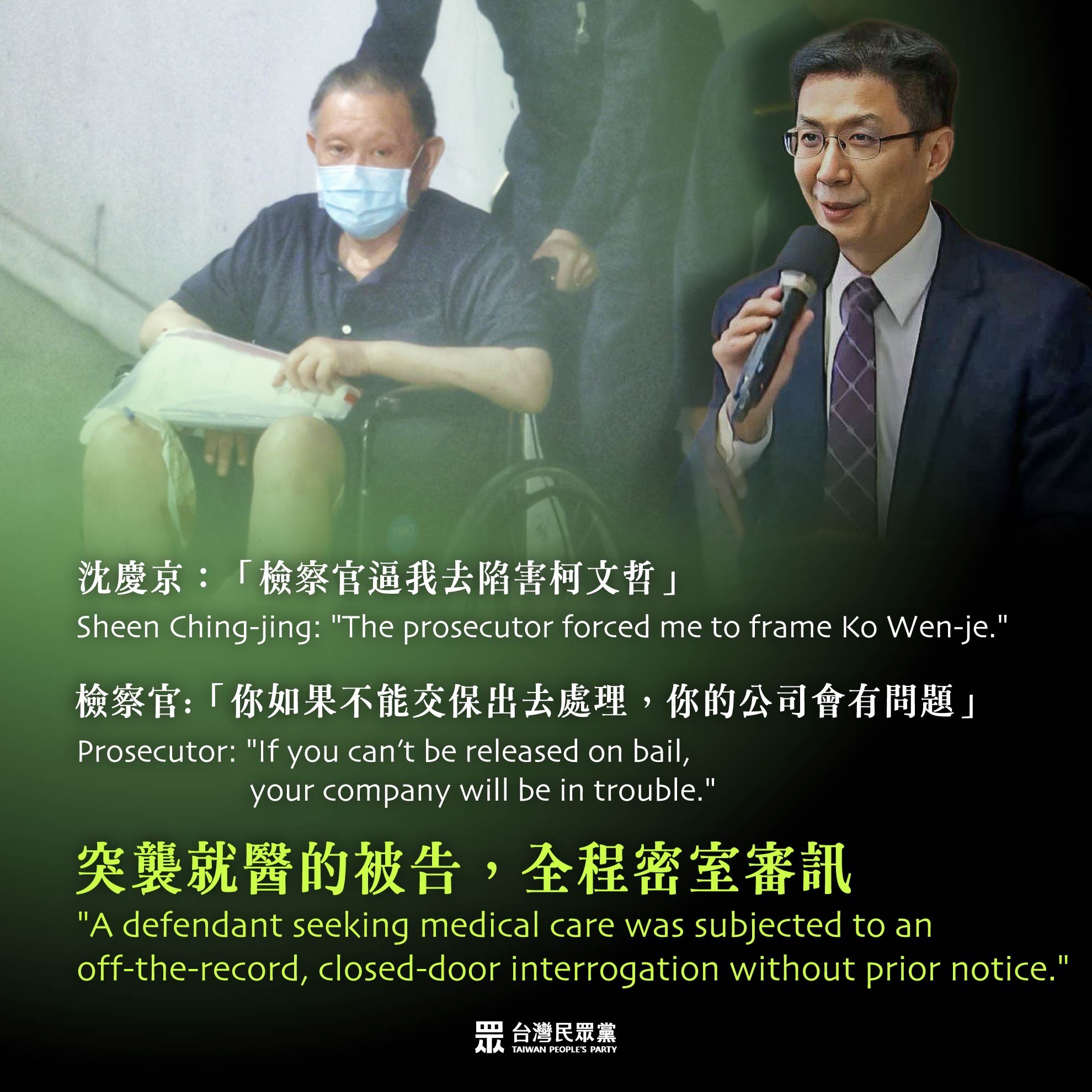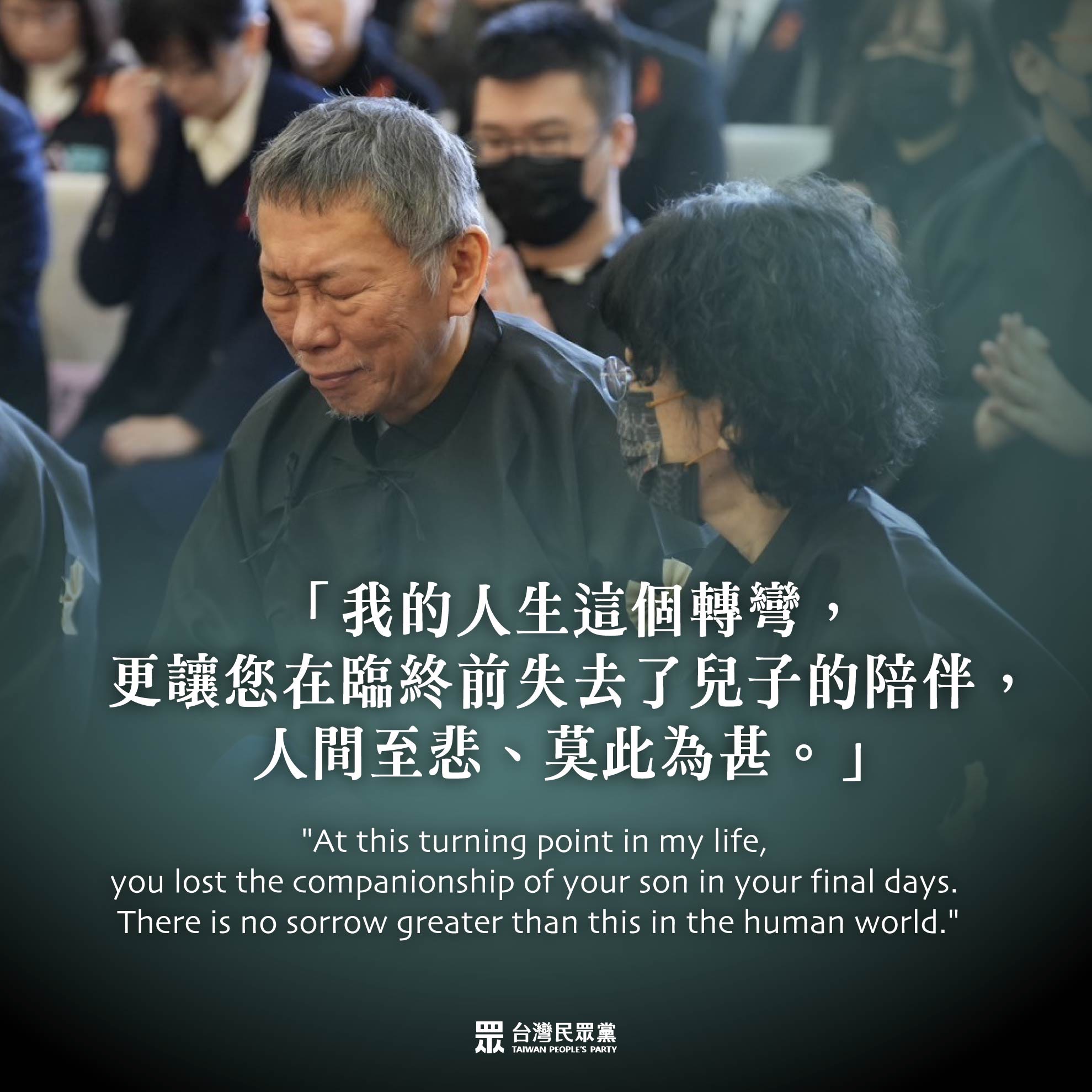Taiwan is backsliding toward authoritarianism.
Taiwan Third Party Founder Dr. Ko Wen-je Sentenced to 28 Years Amid Political Persecution, Lack of Evidence

Taiwan People's Party Chairman Ko Wen-je has faced allegations from the Kuomintang (KMT) and the Democratic Progressive Party (DPP) regarding potential benefits to developers from changes to the Core Pacific City Floor Area Ratio regulations. On August 30, 2024, prosecutors and investigators conducted an unexpected raid on Ko's residence, his office at the Taiwan Glass Building, and the Taiwan People's Party headquarters. Despite his full cooperation, prosecutors—without substantial evidence—still sought a severe sentence of 28 years and 6 months. To date, Ko remains in detention, barred from communication or visits, depriving him—a dedicated doctor for 30 years—of the chance to bid a final farewell to his father.
On March 20, Ko Wen-je stood trial, denied any misconduct, and accused Prosecutor Lin Jun-yan (林俊言) of fabricating evidence, issuing threats, and coercing confessions. Ko stated that the Taipei District Prosecutor's Office released misleading press statements to deceive the public, which undermined the integrity of the judiciary. He also pointed out significant flaws in the investigation process as solid evidence of political persecution.
Prosecutors Abused Power and Coerced Confessions, Eroding Judicial Integrity

During the trial of the Living Mall case at the Taipei District Court, Sheen Ching-jing (沈慶京), Chairman of the Wei Ching Group, revealed that while he was hospitalized on October 11, 2024, Prosecutor Lin Jun-yan (林俊言) unexpectedly arrived at the hospital with a court clerk to conduct an interrogation. Lin claimed that he wanted to "have a private chat with the defendant without recording or videotaping." During the conversation, Lin told Sheen that "Ko Wen-je (柯文哲) is not a good person" and even threatened him, stating, "If you cannot secure bail to handle the matter, your company will face serious consequences." Lin further coerced Sheen into admitting to bribing Ko Wen-je.
This two-hour-long “secret interrogation” resulted in only a few minutes of recorded video footage. The official transcript merely noted that "the defendant remained silent." These actions reveal how Prosecutor Lin Jun-yan, entrusted with upholding justice, has instead abused his authority and become a political tool for the ruling party. By resorting to coercion and forced confessions, Lin has severely undermined judicial fairness and integrity. The impartiality of the judiciary is the foundation of a democratic society. If prosecutors are allowed to disregard due process and manipulate the law for political purposes, it raises grave concerns that anyone who refuses to submit to the ruling party’s will could become the next target of political persecution.
"Father, I Couldn't Be There for Your Final Journey"—The Unending Regret of Taiwan’s ECMO Pioneer Ko Wen-je

For 30 years, Ko Wen-je (柯文哲), renowned as “the Father of ECMO in Taiwan,” devoted himself to saving countless lives with unwavering dedication. Yet, due to political persecution, he was denied the opportunity to bid farewell to his critically ill father. Following the 2024 presidential election, the Democratic Progressive Party (DPP) government unlawfully detained Ko, stripping him of his freedom. Even as his father’s health rapidly deteriorated, Ko was prevented from being by his side. Tragically, his father passed away, and Ko only learned of the devastating news through his lawyer the following day.
On March 10, 2025, at the funeral of Ko’s father, supporters stood in silent solidarity outside the venue, holding signs in support as they awaited Ko’s arrival, who was under custodial escort. Upon entering the hall, Ko fell to his knees in front of his father’s memorial and tearfully said, “This turning point in my life has caused you ten years of worry, and in the end, I could not be there to accompany you in your final moments…” Choking on his words, Ko was unable to continue. Reflecting on the time when his father was gravely ill, Ko was trapped behind bars, deprived of the chance to bid his father farewell in his final moments.
This was a heart-wrenching farewell between father and son, separated by death, with Ko Wen-je only allowed a brief 86 minutes at the ceremony before being escorted away by law enforcement. It became an irreversible regret in Ko’s life. The political manipulation of the judiciary deprived Ko Wen-je not only of the opportunity to save his father but also of the right to accompany him on his final journey. His sorrow is not just a personal tragedy but a cruel testament to the fact that Taiwan’s judiciary has become a political tool.


